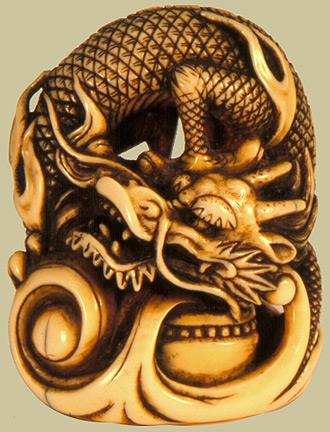Cultural Assumptions: Tendencies versus Universal Truths
By ahoodedfigure 5 Comments

My attentions shifted to Japan in my mid teens. I loved the idea of the samurai, I had that interest in the ninja that people seem to go through (though I'm definitely over that now), and was fascinated by netsuke crafting, the idea that you could have something tiny and intricate that could have been a simple, functional part of your clothing, but was instead elaborate and expressive.
My interest in East Asia continued, and although my focus shifted to China and pretty much stayed there, I'm still fascinated by the variety of human development and the way each of us try to deal with cultural influences as individuals.
I've noticed, though, that there are still a lot of people who tend to think of cultures as monotonic principles that drive entire peoples, like some sort of marching orders no one can disobey. You get the stereotypes, sure, and I've been labeled as a stereotypical American by people who wouldn't know a typical American trait if it ran them over with a bicycle, and I've stereotyped people unfairly as well. At the same time, there seems to be this pervasive idea that cultural experts somehow have a handle on the traits of a people. That their difference from us can be encapsulated in a few pat phrases, often emphasizing their superiority or inferiority to us, or describing them as though they were a separate species instead of a group of human beings.
I'd run into a person who was absolutely enamored with Japanese culture maybe eight years ago, or so. She absolutely insisted upon the politeness and friendliness of the Japanese. I recognize what she might have been getting at, that the Japanese are, on the whole, relatively polite and considerate from my perspective, often having much more patience in social exchanges than I could ever manage. But culture is not so simple to characterize as that. Her implication was that if you meet a Japanese person, they will be guaranteed to be meek, friendly, and polite.

I have met some very blunt and honest Japanese people. I've read about absolutely rude ones. This is because, despite cultural influence, they're still human beings, with the usual variance, irreverence, and rebellion that implies.
It's one thing to say that there is a tendency. You may not know this, from what we often hear in the news you would think we were universally reviled, but most Americans, on a personal level, actually have a reputation for being some of the most kind, considerate, and friendly people on earth (although there are of course, some exceptions). I've heard this time and again from people who were in no way trying to butter me up (they often said this before they tempered it with some of our perceived shortcomings). It was heartwarming to hear this, even if I'm not the most outgoing or friendly person, I liked to think that some part of that culture had rubbed off on me, and I was proud to carry on fostering that perception without even realizing I was doing it.

When we assume traits are universal, though, we wind up short-changing them. We also cheat ourselves, because we wind up missing subtle cues that suggest there's more to someone than the traits that are readily recognizable.
The Japan I've come to know, through meeting people and studying the effects of culture on individuals and groups, is one of surprising complexity. Often this politeness is out of social pressure not to offend, and many often strain against these pressures, breaking out in rebellious ways that Westerners might find odd, incomprehensible, or inadequate. Some people are strong and blunt, others are meek and compliant, but both of those traits still hold things inside of them, just like they do with people more familiar to us. You can be completely polite to someone and still be insulting them through subtle implications in tone or word choice, you can break with tradition in a way a Westerner wouldn't even recognize as rebellious but that might seem scandalous to your peers.
The short of it is that human beings are too damned interesting to be easily put in a bottle like that, West or East.

I'll leave you with a more identifiable example of this.
Consider the statement "Men tend to be" followed by whatever description you prefer. You can talk about a few things that are unequivocally considered something a man is, and I won't bother to get into the details on that, but imagine that someone can put whatever they want into that blank.
Then just switch "Men tend to be" around to say "Men are" and use that same description.
Then switch men to women, or the Japanese, or Americans, or Germans, or whatever else you prefer.
Finally, switch the group name of choice above with the word "you."
While what is said may be arguably true about you, I can personally think of exceptions I've had to just about every categorical assertion anyone has ever said about me, especially by people who didn't know me very well. Language is imprecise that way, but so is human perception. Best to pay more attention to people, gather more data, and don't be afraid to use a little sympathy once in a while to help understand people a bit more. It's a constant effort to keep this up, and I don't pretend that I can manage it all the time, but it's worth it if you really are curious about the outside world and interested in foreign cultures.
I bring this all up because I'm tired of purported cultural experts who pop in and spout some universal truths they think hold true for all Japanese (c.f. some of the comments during the Persona 4 Endurance Run). The Japanese do, from my perspective, do a lot of strange things, but I'd never dare pretend that that was all they were capable of, or that I knew them so well that I could, even after a lifetime of study, pretend I understood them completely. I don't think that's possible, even for someone who grows up IN a society. Culture, and especially individuals, are too dynamic for that.
End of Line

